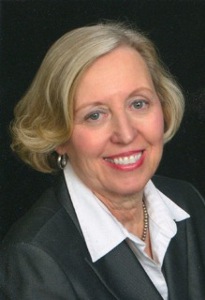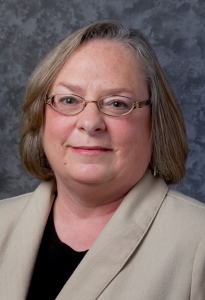
As always, it is an honor to represent District 6 in the Kansas Senate. If I can be of service to you or anyone you know, call my office at 785-296-7375, or email me at [email protected] or feel free to visit me in 125-E at the Kansas statehouse.
In this issue:
• Legislature reaches first adjournment
• Block grants impacting school districts
• Budget update
• Budget relies on tax increases
• Medicaid expansion
• Working Kansans targeted
• Changes to public assistance
• Local elections
• Governor signs bills into law
Legislature reaches first adjournment
Legislators adjourned Thursday, April 2, after passing numerous bills and conference committee reports. They will return for veto session on April 29. At that time, exempt bills, conference committee reports, and any vetoes by the governor will be considered.
Over the break, if you have any questions about any of the legislation being considered, feel free to contact me at home by calling 913-579-3741 or emailing [email protected].
Block grants impacting school districts
Lt. Gov. Colyer told a group of supporters a few weeks ago during a stop in Garden City that he, like the governor and many members of the Kansas Legislature, believes that school funding is the cause of the state’s budget problems. As a result, the Kansas Legislature rushed to pass legislation that completely overhauls funding for K-12 education. It has since been signed into law.
However, this is simply not true. Instead, the state faces massive revenue shortfalls as a result of the governor’s reckless economic experiment.
Unfortunately, now, school districts across the state are beginning to examine the impact of the block grants on their budgets and are making some difficult decisions, including:
• USD 218 in Elkhart is not going to see enough funding restored to prevent further staffing reductions. The district plans to cut a counseling position, reduce the hours of its mechanic, consolidate its athletic director position with its high school principal position, and possibly switch a full-time family and consumer science teacher to part-time.
• USD 437 in Topeka is deferring the rest of the year’s maintenance projects until next fiscal year to ensure they have enough cash on hand in the event that they have to repay nearly $260,000 to the state after cuts were made to state aid designated for such expenses, making it so the district had already received more than what is now budgeted. These projects include the purchase of three new buses, technology infrastructure work, and the paving of a parking lot at an elementary school.
• USD 497 in Lawrence expects to repay almost $672,000 in state aid by the end of the fiscal year because the district has already received more than it is entitled to under the new block grant law. This would mean a hiring freeze for nonteaching staff for the rest of the year as well as fewer teachers and larger class sizes in some buildings for the next school year, according to their superintendent.
• USD 240 the Twin Valley district, which includes Bennington and Tescott, is dismissing school two weeks earlier than scheduled as a result of “the financial plight of the district.” The district indicates that it has few fiscal reserves to endure the present mid-year unplanned financial cuts from the block grant legislation.
• USD 333 in Concordia is dismissing students nearly a week earlier than initially planned to adjust to budget cuts. The district’s superintendent indicated that the early dismissal saves the district almost $30,000.
• USD 450 Shawnee Heights district in Topeka faces a $300,000 cut. Their superintendent has indicated this amount can be saved by not filling many current personnel vacancies.
• USD 400 Smokey Valley district in Lindsborg is dismissing a week earlier than originally scheduled. The district’s business manager said the schedule change would save the district nearly $10,000. This is the same district that closed its elementary school, Marquette Elementary, last year as a result of cuts to K-12 funding.
• USD 312 in Haven is closing its elementary school, Mount Hope Elementary, in addition to moving 7th and 8th graders from an elementary school to a middle school, combining classes at another elementary school, and dismissing classes five days early this year and ten days early next year. They are also seeking a bond issue to help pay for maintenance and upkeep of district buildings.
This list is just the beginning. Each day a new story comes out about a Kansas school district adjusting to the drastic changes in school funding.
Budget update
The Senate passed a budget weeks ago that cannot be sustained without a tax increase. The House has not had the opportunity to debate a budget, but three members participated in Conference Committee negotiations prior to adjournment. This is unusual. Typically, both chambers debate and pass their own budgets, then work to come to an agreement within a conference committee. This year it is unknown whether what is being negotiated will actually pass with full House consideration.
A preliminary budget has been agreed upon, but it was not advanced to the House or Senate prior to adjourning. One critical element of the budget that House and Senate negotiators have agreed on is a provision that would not require school districts to repay any over-payments they received this year. However, the committee is waiting for the updated consensus revenue estimate, which is to be released later this month. So, it is still subject to change.
Budget relies on tax increases
While negotiations of the budget are underway with House and Senate members, one thing that hasn’t been given consideration is the tax increases necessary to balance the budget. As it currently stands, the budget requires more than $220 million in new taxes. Gov. Brownback has proposed the following tax increases:
• Raising taxes on alcohol by 4 percent
• Raising taxes on cigarettes by more than $1.50 per pack
• Reducing the state’s investment into public employee’s pensions
• Taking more than $1 million a day from the state highway fund, the only proven job-creating program in the state.
These are far from solutions for the budget crisis we are in because of the governor’s reckless economic experiment. I do not support any of these.
Tax inequalities
The Institute on Taxation and Economic Policy released a new report showing that low-income Kansans are paying significantly more in taxes compared to others. With the governor’s proposed tax increases, they will have to pay even more.
Medicaid expansion
Despite the submission of more than 160 pieces of testimony in favor of Medicaid expansion, the Kansas Legislature will take no further action on the legislation this year. This is unfortunate and unacceptable. Rejecting the expansion has cost the state about $475 million and counting, and has prevented more than 150,000 Kansans from receiving healthcare coverage.
Plus, expansion is estimated to create 3,800 new jobs by 2020 with the possibility of more. It also provides more stability for safety net clinics by lowering uncompensated costs by at least $25 million. I support expanding Medicaid in Kansas.
Working Kansans targeted
In early February, the Kansas Department of Administration held a press conference announcing that they were seeking policy changes for state employees. Since then, the Kansas Legislature has considered a number of these changes including:
• Prohibiting collective bargaining;
• Changing currently classified state employees to unclassified, making it easier for employees to be fired without cause;
• Barring public employees from using paycheck deductions for union fees or any contribution not part of an employee benefit program; and,
• Limiting unemployment benefits by decreasing employer contributions to the Unemployment Insurance Trust Fund and capping the maximum weekly unemployment insurance benefit available.
Hardworking Kansans deserve policies that provide stability and value their work ethic. I do not support any of these changes.
Changes to public assistance
After five contentious hours of debate, the Senate passed a bill that would make state law Gov. Brownback’s policy changes for Temporary Assistance for Needy Families. These policies have already made it difficult for Kansas families in need to receive assistance, and have caused a drop in families who receive assistance. Now, the proposed legislation creates a lifetime limit for benefits at 36 months – it had previously been 48 months – and implements a daily limit of $25 that can be withdrawn from an ATM – a difficult task given that the average ATM does not dispense five-dollar bills. The Senate passed the bill on a vote of 30-10 and the House on a vote of 87-35. The governor signed the bill into law Thursday (April 16) morning. It will go into effect July 1.
Local elections
The proposal to move local elections from the spring to the fall to coincide with the general elections is gaining traction. The bill passed the Senate with elections remaining non-partisan and occurring in the fall of odd-numbered years. However, in the House, it has been amended to revert back to the original proposal, which would make local elections partisan in November of even-numbered years. I do not support this proposal.
Governor signs bills into law
As of mid-April, the governor has signed 32 bills into law, including:
• House Substitute Senate Bill 4 – adjusts the current fiscal year’s budget by raiding the highway fund, the KEY fund, and KPERS; passed the Senate on a vote of 24-13. I did not vote for it.
• House Substitute for Senate Bill 7 – known as the education block grant bill, repeals the current school finance formula and relies on a set amount of funding for each school for the next two years; passed the Senate on a vote of 25-14. I did not vote for it.
• Senate Bill 13 – allows notification to victims regarding the release of defendants from confinement, assignment to work release, or any other change in custody status; passed the Senate unanimously.
• Senate Bill 45 – authorizes the carrying of concealed handguns without a license; passed the Senate 31-7.
• Senate Bill 46 – establishes requirements for identification and possession of domesticated deer; passed the Senate unanimously.
• Senate Bill 73 – updates definitions of all-terrain vehicle, recreational off-highway vehicle, and work-site utility vehicle; passed the Senate unanimously.
• Senate Bill 95 – bans all forms of abortion using the dilation and evacuation or dilation and extraction methods, deemed by the bill as “dismemberment” abortion; passed the Senate 31-9.
• Senate Bill 108 – allows the Kansas Real Estate Commission to raise the ceiling on license fees to $50; passed the Senate 36-4.
• Senate Bill 109 – creates the Kansas Disaster Utilities Response act, allowing out-of-state disaster relief personnel to get to work faster by not requiring business registration for tax purposes; passed the Senate unanimously.
• Senate Bill 120 – lowers the threshold for legislative approval when Wildlife Parks and Tourism buys property and addresses an exception to that limitation in four specific counties; passed the Senate 32-7.
• House Bill 2006 – allows disabled veterans to park, without charge, in public parking facilities; passed the Senate unanimously.
• House Bill 2085 – designates the secretary of the Department of Transportation to also be the director of the Kansas Turnpike Authority and allows contracts between KDOT and KTA; passed the Senate 37-1.
• House Bill 2254 – exempts certain general contractors from the Roofers Registration act; passed the Senate unanimously.
• House Bill 2275 – adds several drugs or drug classes to the schedules of controlled substances; passed the Senate unanimously.
• House Bill 2336 – allows people 16 years to 18 years of age convicted of crimes as an adult to be confined in Kansas juvenile facilities and standardizes risk assessment to improve opportunities to place juveniles safely in the least restrictive environments; passed the Senate unanimously.

